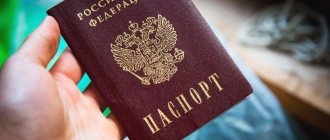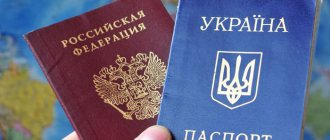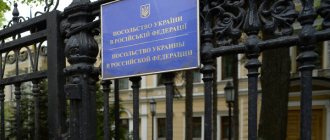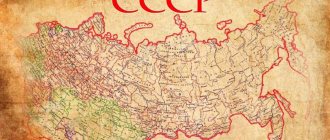Obtaining citizenship of the Russian Federation is a long and troublesome process. Government agencies check candidates for compliance with the requirements of Russian legislation. Not all foreigners know who resolves issues of Russian citizenship in each specific case. The President or the migration authorities - where can the applicant expect an answer? And what assistance can the Ministry of Foreign Affairs provide in resolving the issue? We answer these questions in our material.
Russian citizenship: how to get it
There are several ways to become a Russian.
We will list just a few of them:
- naturalization (by application);
- filiation (by birth);
- option (if the territory ceded to Russia and in this situation you need to choose your citizenship).
For today's foreigners, perhaps the most common method is naturalization. The process can follow a general and simplified algorithm.
Anyone can take the first path - to obtain citizenship on a general basis - they just need to fulfill the conditions prescribed by law:
- qualification period (5 years for residence permit);
- knowledge of the language and laws of the Russian Federation;
- renunciation of previous citizenship;
- availability of legal income in the Russian Federation.
The second option is suitable for ethnic Russians who, for example, have relatives in Russia or who emigrated once and now want to return to their homeland. This is not a complete list of categories of citizens who have the right to a simplified procedure.
We described all the reasons, as well as its algorithm, in a publication on how to obtain Russian citizenship.
How issues of Russian citizenship are resolved
When a foreign citizen has fulfilled all the requirements established by law, he can apply to government authorities with an application and a set of documents.
Foreigners should know that resolving issues of citizenship and granting political asylum falls within the competence of the Main Directorate for Migration Issues of the Ministry of Internal Affairs of the Russian Federation (hereinafter referred to as the GUVM - the Ministry of Internal Affairs of the Russian Federation).
Submitting an application and a package of papers is the first step on the path to a Russian passport. Next, the case is transferred to the relevant authorities, depending on the procedure for acquiring civil status - general or simplified. In the first option, the decision is made by the President of the Russian Federation, in the second - by the territorial bodies of the Main Directorate of Migration Affairs of the Ministry of Internal Affairs.
The system of government bodies in resolving citizenship issues in Russia
In the Federal Law “On Citizenship of the Russian Federation”
state bodies in charge of affairs in this area
, the composition of their powers, the procedure for producing and appealing decisions in such cases are indicated
According to the provisions of Article 28 of the above-mentioned Federal Law, the composition of the authorized bodies in charge of matters of Russian citizenship includes:
includes:
– President of the Russian Federation;
– the federal executive body, which is authorized to exercise control and supervision functions in the field of internal affairs, as well as its territorial bodies;
- a federal executive body dealing with issues in the field of foreign affairs, as well as diplomatic missions and consular offices of the Russian Federation located abroad.
The Federal Law “On Citizenship of the Russian Federation” also determines the powers of the bodies in charge of cases of Russian citizenship
.
In the system of government bodies whose activities are related to the area under consideration, the President of Russia
as the head of state representing him.
In paragraph “a” of Article 89 of the Constitution it is stated that the President of the Russian Federation decides issues of citizenship
. They include: admission, restoration, withdrawal and cancellation of decisions on admission to citizenship.
According to the provisions of Part 1 of Article 29 of the Federal Law “On Citizenship of the Russian Federation” to the powers of the President of the Russian Federation
The following questions are included:
– admission to Russian citizenship in accordance with the general procedure in accordance with Article 13 of the Federal Law;
– restoration of citizenship in accordance with the general procedure in accordance with Article 15 of the Federal Law;
– renunciation of Russian Federation citizenship in accordance with the general procedure in accordance with part one of Article 19 (of the person himself) and part one of Article 26 (of his child) of the Federal Law;
– cancellation of decisions on issues of citizenship of the Russian Federation in accordance with Article 23 of the Federal Law.
The President of the Russian Federation also approves the Regulations on the procedure for considering issues in this area; ensures coordinated interaction and functioning of authorized bodies dealing with such issues; issues decrees in this area.
To exercise powers on issues of citizenship and preliminary consideration of applications, the President of Russia forms a Commission on Citizenship Issues under the President of the Russian Federation
.
Its tasks include: preparing proposals for the President on these issues, ensuring the development and implementation of a unified state policy in this area, as well as monitoring the implementation of decisions in this area. the Office of the President of Russia on Citizenship Issues
functions as its structural unit .
The remaining government bodies that take part in resolving citizenship issues or directly resolve them are part of the system of executive authorities.
Among them are: Main Directorate for Migration Issues of the Ministry of Internal Affairs of the Russian Federation
(formed on April 5, 2021 instead of the abolished FMS), as well as the Ministry of Foreign Affairs, diplomatic missions, consular offices.
According to Article 30 of the Federal Law, the federal executive body, which is authorized to implement the functions of control and supervision in the field of migration
, and its territorial bodies send the following
powers
:
– establish the presence of Russian citizenship among persons living on the territory of Russia;
– accept relevant applications from persons who reside in the territory of the Russian Federation;
– evaluate the facts and documents presented as substantiation of the relevant statements, and, if necessary, establish additional information in the relevant state bodies;
– send to the President in cases provided for in Part 1 of Article 29 of the Federal Law (concerns the general order) statements on citizenship problems, submitted documents and conclusions on them;
– implement decisions made by the President on relevant issues in relation to those persons who reside in the country;
– consider applications on citizenship issues submitted by persons living in the territory of the Russian Federation, and resolve relevant issues in a simplified manner in accordance with Article 14, Part 3 of Article 19 and Part 3 of Article 26 of the Federal Law;
– keep records of persons in respect of whom decisions have been made to change their citizenship;
– obtain Russian citizenship in accordance with Part 2 of Article 12, Parts 2 and 4 of Article 26 of the Federal Law;
– cancel decisions on issues of citizenship of the Russian Federation in accordance with Article 23 of the Federal Law.
In accordance with the provisions of Article 31 of the Federal Law, the powers of the Ministry of Foreign Affairs and diplomatic missions and consular offices of Russia
included:
– determining whether persons living outside the Russian Federation have Russian citizenship;
– acceptance of applications on issues of Russian citizenship from persons living outside of Russia;
– checking the facts and documents presented to substantiate applications on issues of Russian citizenship, and, if necessary, filing a request for additional information with the relevant government bodies;
– sending to the President of Russia, in cases provided for in Part 1 of Article 29 of the Federal Law (concerns the general order), statements on relevant issues, documents submitted to substantiate them and conclusions on them;
– execution of decisions made by the President of Russia on issues of citizenship in relation to those persons who live outside the country;
– consideration of applications on issues of Russian citizenship submitted by persons living outside the Russian Federation, and making decisions on relevant issues in a simplified manner in accordance with Article 14, parts 2 and 3 of Article 19, part 3 of Article 26 of the Federal Law;
– maintaining records of persons in respect of whom consular offices and diplomatic missions of the Russian Federation located outside Russia made decisions on issues of changing citizenship;
– registration of Russian citizenship in accordance with Part 2 of Article 26 of the Federal Law;
– cancellation of decisions on issues of Russian citizenship in accordance with Article 23 of the Federal Law “On Citizenship”.
Thus, in the system of government bodies in resolving issues of citizenship in Russia
distinguished by: the President of the Russian Federation, the Main Directorate for Migration Issues of the Ministry of Internal Affairs of the Russian Federation and its territorial bodies, the Ministry of Foreign Affairs of the Russian Federation, diplomatic missions and consular offices.
- Back
- Forward
Legislative regulation of the powers of bodies resolving issues of citizenship of the Russian Federation
The main regulatory act that establishes the types and competence of government bodies of the Russian Federation with respect to changes in civil status is Federal Law No. 62-FZ of May 31, 2002 “On Citizenship of the Russian Federation.” It clearly states how the Ministry of Foreign Affairs can help when the President of the Russian Federation is involved in resolving the issue, and when foreigners deal only with the territorial bodies of the Main Directorate of Migration Affairs of the Ministry of Internal Affairs. Article 28 of this law determines how citizenship issues are regulated in the Russian Federation and who makes a decision in each specific case.
The functions of responsible government institutions are also discussed in Art. IV Regulations on the procedure for considering issues of citizenship of the Russian Federation (approved by Decree of the President of the Russian Federation of November 14, 2002 No. 1325).
In addition, the Government of the Russian Federation regulates citizenship issues in Russia by separate orders; for example, it is the main executive body that sets quotas for obtaining temporary residence permits (as the first “step” to the status of a Russian citizen) and their distribution among regions.
What are the issues of granting the status of a citizen of the Russian Federation?
Citizenship issues are all issues and procedures related to the acquisition or renunciation of citizenship. These include: obtaining citizenship at birth, naturalization, restoration of citizenship, deprivation or renunciation of citizenship, obtaining the status of a native speaker of the Russian language, consideration of repeated issues.
Important: The main document regulating all these issues is Decree of the President of the Russian Federation of November 14, 2002 N 1325 “On approval of the Regulations on the procedure for considering issues of citizenship of the Russian Federation.” Additional information is available in the federal law of 2002 “On Citizenship of the Russian Federation.”
Authorities and their role in resolving issues of Russian citizenship
A detailed analysis of the legislative framework allows us to conclude that the authorized bodies in charge of matters of citizenship of the Russian Federation include:
- The President of the Russian Federation and the Commission created under him;
- Ministry of Internal Affairs of the Russian Federation represented by the Main Directorate for Migration Issues (including all territorial branches);
- Ministry of Foreign Affairs of the Russian Federation, as well as diplomatic missions of the Russian Federation abroad;
- Federal Security Service.
As for the last department: it does not apply to those who directly decide on issues of admission to Russian citizenship. However, the explanatory documents indicate that the FSB checks all submitted documents and gives an opinion on each foreigner who wishes to become a Russian citizen on a general basis or in a simplified manner.
Next, we will consider the specific powers of each state institution in the process of resolving issues of acquiring status.
President of Russian Federation
The powers of the President of the Russian Federation in this area described in the Law on Citizenship and the Regulations are exercised only in the case of passing through the general procedure, renunciation of citizenship or its restoration. His signature is also needed in cases where it is necessary to cancel the decision made to grant Russian status.
The head of state, by virtue of his functions, coordinates the activities of all other bodies that deal with issues of granting or depriving Russian citizenship.
To ensure high-quality work in this direction, a special Commission is being created under the President of the Russian Federation, which carries out preliminary consideration of cases and prepares appropriate proposals for it to the head of state.
Main Directorate for Migration of the Ministry of Internal Affairs of the Russian Federation and its territorial divisions
The Main Directorate for Migration Issues of the Ministry of Internal Affairs is one of the authorized bodies on citizenship issues, which directly deals with issues of granting Russian status. Foreigners submitting an application on the territory of Russia submit a package of documents to these departments, regardless of the specific grounds (general or “preferential”). Under the general procedure, a person’s case is transferred to higher authorities, up to the President of the Russian Federation.
If there are grounds for a simplified scheme, the official making decisions on issues of citizenship of the Russian Federation is “on the spot”. The final conclusion is issued in this case by the regional bodies of the Main Directorate for Migration.
So, the scope of responsibility of this government body includes:
- accepting applications from persons residing in the Russian Federation (at the place of registration);
- checking documents for compliance with requirements;
- drawing up opinions on cases according to the general procedure and sending them to higher authorities;
- maintaining a database of all foreigners who filed a petition to change citizenship (granting or deprivation), and the decisions taken on each issue;
- cooperation with the FSB and other responsible authorities;
- making decisions regarding admission to citizenship according to a simplified scheme;
- execution of decisions regarding changes in civil status;
- registration of the cancellation of decisions made when the facts of violations are clarified.
Ministry of Foreign Affairs and diplomatic missions of the Russian Federation: for applicants living abroad
Citizens who apply to change their civil status from abroad should resolve all issues of migration and citizenship at the diplomatic missions of the Russian Federation in their country of residence: consulates or relevant departments of embassies.
According to Russian legislation, they are entrusted with the following functions:
- receiving and checking applications and packages of documents from persons who want to obtain Russian citizenship or renounce it;
- issuing conclusions on the application and sending it to the Russian Ministry of Foreign Affairs for further consideration;
- execution of decisions regarding changes in status;
- determination and certification of Russian citizenship;
- reversing their decisions if additional facts emerge that confirm the illegality of the verdicts.
As for the Ministry of Foreign Affairs of the Russian Federation, it performs an intermediate function between those who directly deal with issues of Russian citizenship: it transfers cases from diplomatic missions to the Commission under the President of the Russian Federation, and also keeps records of all applicants.
General provisions
The law includes a special commission formed under the president as a body that makes decisions on issues of citizenship of the Russian Federation. He also delegates to her a set of rights and responsibilities in providing foreign citizens and stateless persons with Russian legal status. The Citizens' Commission is a government agency. Her main powers include :
- preparation of projects, proposals, bills on citizenship matters for submission to the president;
- implementation of a unified state policy in matters of granting citizenship;
- control over compliance with legislation and execution of certain decisions relating to a unified legal status;
- consideration of applications and petitions for obtaining ordinary and dual citizenship of the Russian Federation, termination of civil legal relations.
The Commission also deals with general issues related to the development of new provisions, additions and amendments to existing regulations governing the main points in obtaining and terminating a legal connection.
The remaining bodies that resolve issues of citizenship of the Russian Federation belong to the executive branch system. This is the Ministry of Internal Affairs and all its divisions, the Ministry of Foreign Affairs, various consular and diplomatic institutions. They perform the following functions:
- accepting applications;
- checking the submitted documents and the facts stated in the application;
- sending verified and prepared papers to the Citizenship Commission;
- identification of persons as belonging to the citizenship of the Russian Federation;
- registration of changes in legal status in cases directly provided for by current legislation.
The powers in this matter of the above bodies are almost the same, with the exception that the ministries exercise them within the borders of the Federation, and consulates and diplomatic missions - outside it.
Law firms
Changing your civil status is a troublesome and time-consuming process. Therefore, citizens are tempted to turn to private law firms that promise to help resolve this issue. Advertising of such organizations, as a rule, is replete with the words “fast”, “inexpensive”, “guaranteed”.
In such cases, it is important to remember that cases of citizenship of the Russian Federation are authorized to consider only the state bodies described above in this article and only within the time limits specified by law. And no private organization can influence the decision of officials or the speed of passage of a specific package of documents through all authorities.
The only plus is that the employees of these companies take on the organizational hassle of preparing documents and visiting government departments. In this way, a foreign citizen’s time is saved, but not money, because they are very expensive.
Brief summary
Knowledge of the powers of government bodies that we have described that are involved in resolving citizenship issues will help a foreigner navigate the main algorithm for completing his application.
Applications and documents of applicants are reviewed by the Ministry of Internal Affairs of the Russian Federation (represented by the Main Directorate for Migration Issues) and the Ministry of Foreign Affairs of the Russian Federation (through diplomatic missions). Decisions on admission to Russian citizenship are made by the territorial bodies of the Main Directorate for Migration Affairs and the President of the Russian Federation.
Consideration of decisions on admission to Russian citizenship
Specific conditions and requirements for applicants for a Russian passport, the procedure for considering cases, as well as the powers of government bodies are described in the relevant legislative acts:
- Federal Law of May 31, 2002 No. 62-FZ “On Citizenship of the Russian Federation”;
- “Regulations on the procedure for considering issues of citizenship of the Russian Federation” (approved by Decree of the President of the Russian Federation of November 14, 2002 No. 1325).
Under the general scheme of naturalization, the competence of the right to admit Russian citizenship belongs to the head of state.
Let's consider the “path” of the applicant’s petition, which was filed in Russia.
In this case the order is:
- submitting a package of documents along with an application addressed to the head of state to the territorial body of the Main Directorate for Migration and Migration at the place of registration;
- consideration of the case and issuance of a conclusion by an employee of the territorial unit of the Main Directorate for Migration;
- issuance of an opinion in the Directorate (department) of the FSB of a constituent entity of the Federation;
- transfer of papers with all collected signatures to the Commission on Citizenship Issues under the President, including submission of proposals regarding the candidate;
- rendering a verdict by the head of state and signing the corresponding decree.
If the application is submitted abroad, the decision on admission to Russian citizenship is still made by the president of the country, only the authorities that issue opinions change slightly. Before submitting to the relevant commission, their “approval” must be given by the consulate (the corresponding department of the embassy), the Ministry of Foreign Affairs of the Russian Federation, and the Federal Security Service of the Russian Federation.
In the case of a simplified procedure (in the specialized literature it is also called registration), the issue of admission to Russian citizenship is considered by the territorial branches of the Main Directorate for Migration of the Ministry of Internal Affairs.
A foreigner submits an application (not a petition) addressed specifically to the Ministry of Internal Affairs (or the Ministry of Foreign Affairs, when applying abroad). In this case, a mark remains mandatory in the territorial bodies of the Federal Security Service, which confirms the trustworthiness of the applicant for Russian citizenship.
The applicant is considered a full Russian citizen from the date of the relevant decision of the Ministry of Internal Affairs or the signing of the Decree by the President of the Russian Federation.








